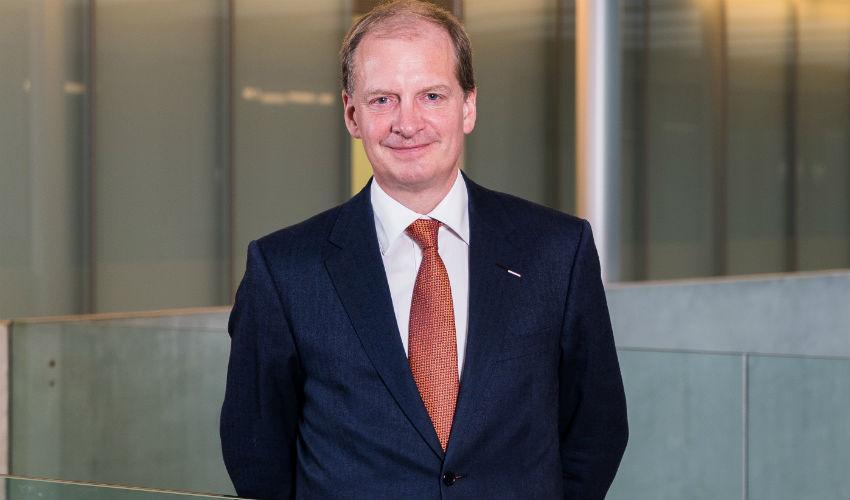
Nicolai Foss between Strategy and Entrepreneurship
HOLDER OF THE RODOLFO DEBENEDETTI CHAIR, THE BOCCONI PROFESSOR HAS REACHED THOUGHT PROVOKING RESEARCH RESULTS REGARDING ORGANIZATION DESIGN, DIVERSITY AND THE RELATION BETWEEN GOVERNMENT AND ENTERPRISESFor Nicolai Foss, moving into the entrepreneurship field has been a logical move. “I am mainly known as a firm strategy scholar”, he says, “but strategy and entrepreneurship are closely related since you can interpret the latter as one of the origins of firms’ competitive advantages”. Foss is Full Professor and, starting from September 2017, Rodolfo Debenedetti Chair of Entrepreneurship at Bocconi University (the Lectio Inauguralis will be held on October 16). His thinking is often thought-provoking. As an organizational theorist, he has studied established firms and he still does, swimming against the tide of entrepreneurship research which often defines entrepreneurship as the creation of new firms. “Many people think that the most important innovations always originate in small new firms. This is simply not the case. Because of the emphasis on startup companies, we neglect established companies, yet they are engines of innovation, job creation and growth”.
A lesson in design
Instead of focusing on the psychological reasons that drive people to start a business, Professor Foss turned his attention to organizational design, combining entrepreneurship theory and organizational theory. His work on open innovation is part of this strand of research. He suggests that firms that aim at leveraging external knowledge in the context of innovation must design an appropriate internal organization. “I have looked at how delegation, communication and incentives to knowledge sharing impact the firm’s ability to identify, get in touch, bring inside, and disseminate knowledge”. Foss also studied the role of centralization vs decentralization with respect not only to discover, but also to exploit opportunities. “Surprisingly enough, this is an often overlooked aspect of entrepreneurship. One of the things I found is the usefulness of the delegation of decision rights. The conventional wisdom is that it is preferable to centralize operations when firms exploit opportunities and have a tight control over the process. We show that this is not the case. When you exploit an opportunity deriving from external knowledge you need to be in continuous contact with the people who are at the origin of the innovation”. Foss also looked at the exploration-exploitation dilemma: is it better to be creative and come up with new ideas or to be operational and production-oriented? A lot of research says that you need a radically different organization when you explore as compared to when you exploit. Foss found that the same organization design can often be utilized for both purposes.
The power of diversity
Professor Foss has then turned his attention to entrepreneurship and diversity in established companies. Many managers laud diversity and decentralization as ways to mobilize initiatives at the lower level and drive entrepreneurship and innovation. “Bottom-up initiative and diversity have been studied separately. However, together they reinforce each other”, he says. “Also, there is consensus in literature that the top management should limit itself to picking or discarding ideas. We showed that top managers should have an important role in structuring the process and assisting projects”. In a recent paper, Nicolai Foss looked at gender diversity in top management teams. The provocative finding is that the more women in the top management team, the better. But this effect is significantly weaker in companies that already have many women in the rest of the organization.
Government and start-ups
Another strand of research is dedicated to the comparison of institutions and policies in different countries in order to learn how they influence entrepreneurship. In a number of papers, Nicolai Foss and Christian Bjørnskov analyzed data from, for example, the World Bank and the Global Entrepreneurship Monitor. In one of them they observe 25 countries in six five-year intervals from 1980 to 2005. They expected economic freedom – i.e. easier regulations, low taxation, legal stability, limited government interference, small size of the public sector – to boost entrepreneurship. However, they found that in countries with a big public sector such as Sweden there may not be many startups, but those few startups significantly contribute to economic growth. “Interpretation is an intriguing exercise”, Foss says. “Those who lean more to the left would say that a big public sector is effective in helping entrepreneurship. Liberals would answer back that a big public sector makes life difficult for entrepreneurs and that only the very best survive in these conditions. It is not clear what is true”.
Find out more
Nicolai Foss, Peter G. Klein, Organizing Entrepreneurial Judgment: A New Approach to the Firm, Cambridge University Press, 2012.
Nicolai Foss, Keld Laursen, Torben Pedersen, Linking Customer Interaction and Innovation: The Mediating Role of New Organizational Practices, in Organization Science, 2011.
Nicolai Foss, Jacob Lyngsie, Shaker Zahra, The Role of External Knowledge Sources and Organizational Design in the Process of Opportunity Exploitation, in Strategic Management Journal, 2013.
Jacob Lyngsie, Nicolai Foss, The More, the Merrier? Women in Top-Management Teams and Entrepreneurship in Established Firms, in Strategic Management Journal, 2017.
Christian Bjørnskov, Nicolai Foss, Economic Freedom and Entrepreneurship: Some Cross-Country Evidence, in Public Choice, 2008.
by Claudio Todesco
